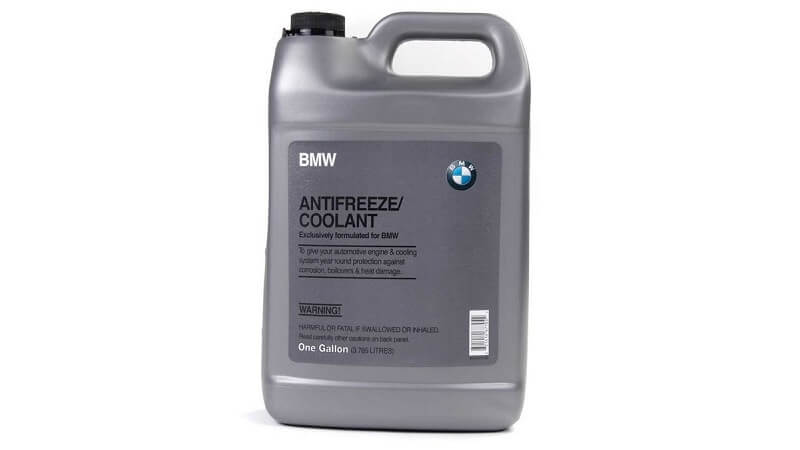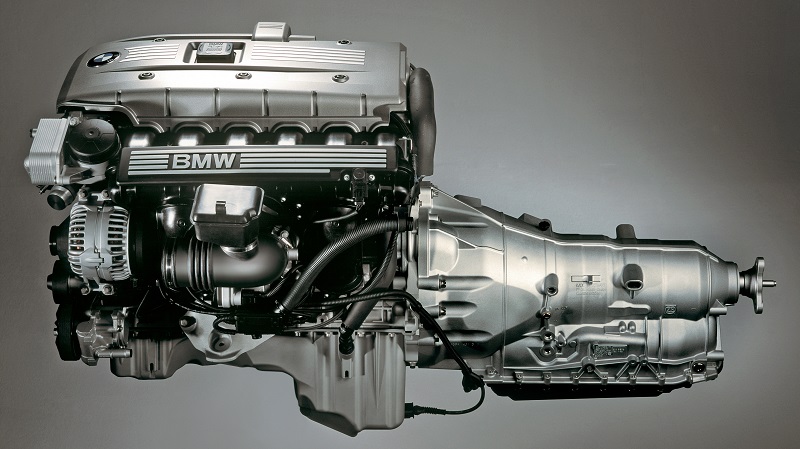Have you ever experienced difficulty shifting into first gear on a cold morning with your BMW? Imagine sitting in your car, eager to start your day, but your manual transmission feels notchy and resistant. Despite your efforts to shift into another gear, it just doesn’t seem to cooperate until the transmission warms up.
Driving a BMW with a manual transmission is a joy, offering a unique connection to your car that enhances the experience. However, this issue is a common frustration among BMW manual transmission owners, making the experience slightly bitter.
Maintaining a healthy manual transmission is crucial to avoiding this dreaded experience. Early signs of trouble, like difficult gear shifts or unusual noises, should not be ignored. Addressing these issues promptly can prevent more severe and costly problems down the line.
In this blog post, we will explore common symptoms of manual transmission problems in BMWs, their potential causes, and effective repair solutions. We’ll start by highlighting the importance of inspecting related systems, like the clutch and transmission lubrication. Additionally, we’ll offer preventative maintenance tips and advice on when to seek professional help, ensuring your BMW stays in top condition.
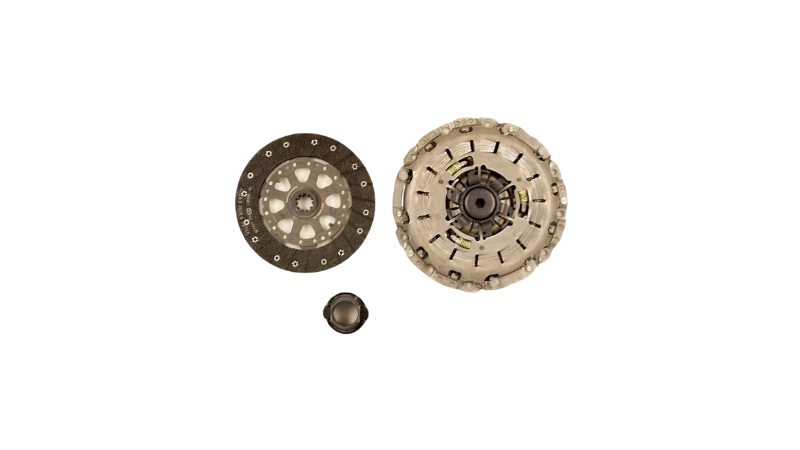
Common Symptoms of Manual Transmission Issues
Identifying symptoms early is crucial for diagnosing and addressing manual transmission issues in your BMW. Recognizing these signs can help prevent more severe damage and costly repairs. Here are some common symptoms to look out for:
Grinding or Crunching Noise
A grinding or crunching noise when shifting gears often indicates worn synchronizers or damaged gears. This symptom typically occurs when the synchronizer is unable to match the speed of the gears properly during a shift.
Difficulty Shifting or Gear Slippage
Clutch issues, low transmission fluid, or issues with the shift linkage can cause difficulty shifting gears or gear slippage, which can make driving challenging and unsafe if not addressed promptly.
Whining, Humming, or Clunking
Unusual noises like whining, humming, or clunking while driving may point to worn bearings, gears, or a lack of proper lubrication. These noises can worsen over time, leading to more significant transmission problems.
Vibrating or Shaking While Driving
Vibration or shaking during operation can be a sign of a worn transmission mount, an unbalanced driveshaft, or internal transmission issues. This symptom affects driving comfort and indicates underlying mechanical problems.
Popping Out of Gear
If your transmission pops out of gear while driving, it may be due to worn shift linkage, damaged gears, or internal transmission faults. This issue can pose a serious safety risk and should be addressed immediately.
Recognizing these symptoms early and taking action can help maintain your BMW’s performance and extend the lifespan of your manual transmission.
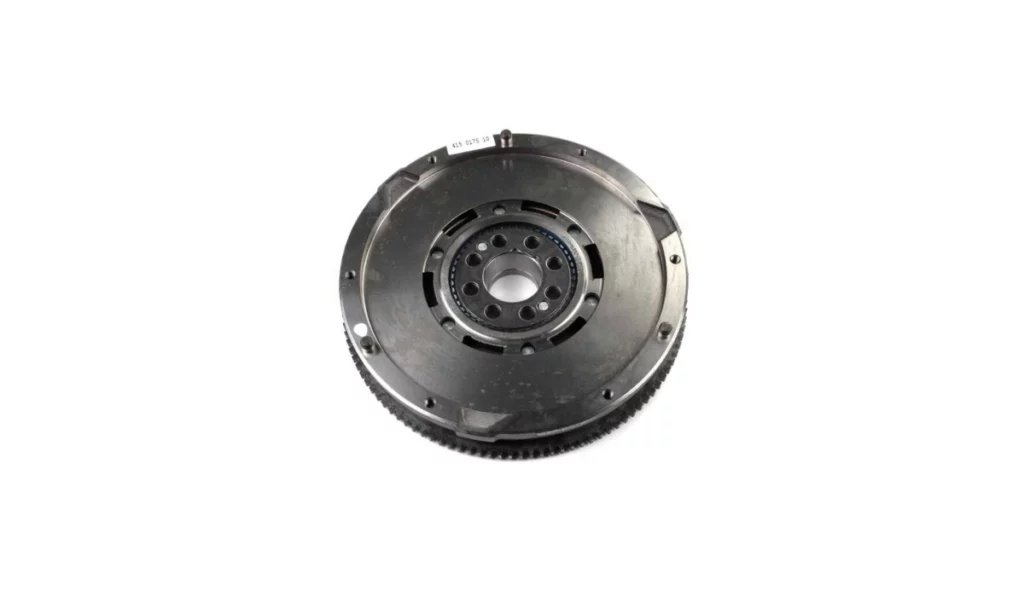
Common Causes of Transmission Problems
Understanding the root causes of manual transmission issues can help you address them more effectively and prevent future problems. Here are some common causes of transmission problems in BMWs:
Clutch Components Issues — Worn or damaged clutch components, such as the clutch disc, pressure plate, or flywheel, can make gear engagement difficult and may cause slipping or grinding noises.
Clutch Hydraulics Issues — Problems on the hydraulic side of the clutch, such as leaks or failures in the master cylinder, slave cylinder, clutch fluid lines, and even clutch/brake fluid, can result in improper clutch operation. These issues can lead to difficulties in shifting gears, clutch slippage, or grinding noises, all of which can negatively affect transmission performance.
Low or Contaminated Transmission Fluid — Transmission fluid that is low or contaminated can result in poor lubrication, leading to increased friction and wear on internal components. This can cause shifting problems and unusual noises.
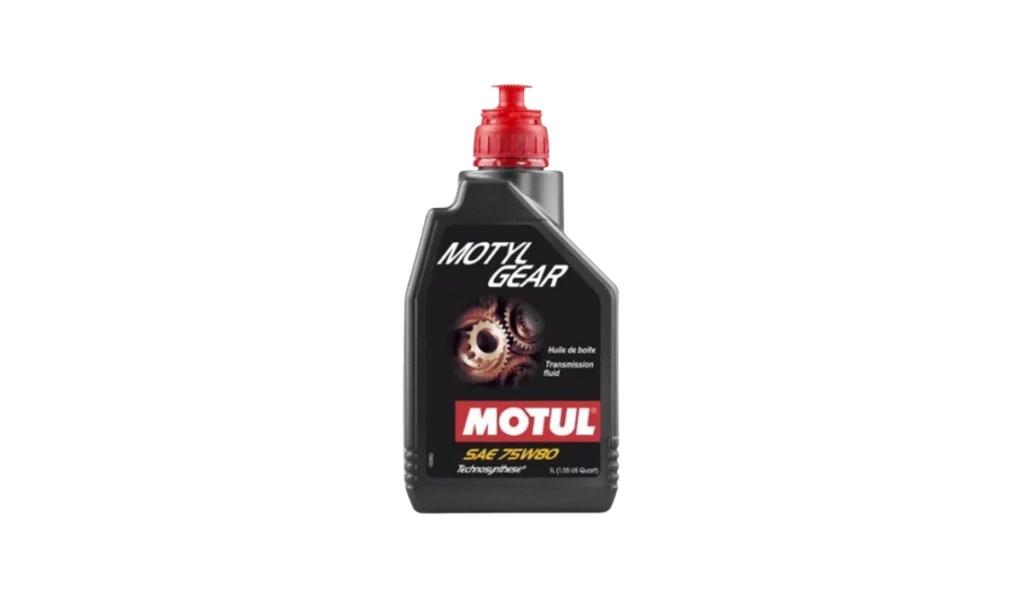
Worn Synchronizers — Synchronizers help match the speed of the gears during shifting. When these become worn or damaged, you may experience grinding noises or difficulty shifting gears.
Faulty Shift Link Mechanism — Faulty shift linkage, bushings, or cables can prevent proper gear engagement and lead to hard shifting or the transmission popping out of gear.
Worn Gears or Bearings — Gears and bearings that are worn or damaged can cause a variety of issues, including unusual noises, difficulty shifting, and overall poor transmission performance.
Worn Transmission Mount — A damaged or worn transmission mount can cause vibration or shaking during driving and misalignment of the transmission, which can affect gear engagement.
Who makes BMW manual transmissions?
BMW manual transmissions are manufactured by both Getrag and ZF Friedrichshafen AG. Getrag, now part of Magna PT, has a long-standing relationship with BMW and provides high-quality manual and automatic transmissions for various models. ZF also supplies robust and precise manual transmissions, such as the ZF S6-53, found in several BMW performance models.
The collaboration with these renowned companies ensures that BMW’s manual transmissions are reliable, precise, and capable of handling the performance demands of these vehicles. This partnership has helped BMW maintain its reputation for producing cars that offer an engaging and enjoyable driving experience.
Genuine BMW Parts Delivered Fast
At Bimmers.com, find a wide array of genuine BMW and OEM parts at unbeatable prices. Our goal is to support BMW enthusiasts with high-quality auto parts that won’t break the bank. From vital engine components to routine maintenance items, our parts meet OEM standards and are designed to keep your BMW performing at its best.
Choosing Bimmers.com means getting the best value without sacrificing quality. With our extensive inventory, user-friendly website, and excellent customer service, you’ll find exactly what you need for maintenance and upgrades.
Initial Inspections
Before suspecting your BMW’s manual transmission, it’s crucial to inspect other related systems. These preliminary checks help identify simpler issues that might be causing transmission problems. Here’s what to look at first:
Clutch Operation
The clutch system is integral to the proper functioning of your BMW’s manual transmission. Ensuring that both mechanical and hydraulic components are in good condition can often resolve shifting issues without requiring more extensive transmission repairs.
Mechanical Parts — Inspect the clutch disc, pressure plate, and flywheel for wear or damage. Worn or damaged components can cause slipping, difficulty in shifting gears, and unusual noises.
Hydraulic Parts — Check the master cylinder, slave cylinder, and hydraulic lines for leaks or damage. Faulty hydraulic components can lead to improper clutch engagement, making it difficult to shift gears smoothly.
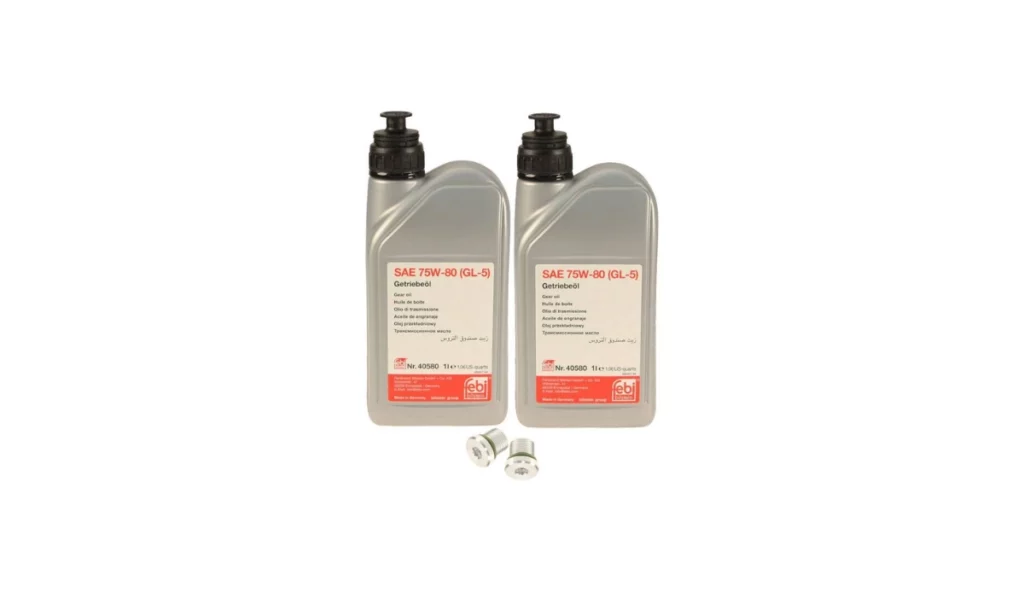
Transmission Lubrication
Proper lubrication is essential for transmission health. Inspecting the transmission lubrication system helps ensure all moving parts are adequately lubricated, reducing friction and preventing wear.
Gear Oil Levels and Condition — Regularly check the transmission fluid levels and condition. Low or glittery fluid can cause significant transmission issues, including difficulty shifting and wear on components.
Gear Oil Specifications — Using the correct transmission fluid type is vital for optimal performance. Refer to your BMW’s owner’s manual to ensure you’re using the recommended fluid, as using the wrong type can lead to poor lubrication and potential damage to the transmission.
By performing these initial inspections, you can often identify and resolve simpler issues affecting your BMW’s manual transmission, saving time and avoiding unnecessary repairs.
Detailed Troubleshooting and Repair Solutions
When experiencing issues with your BMW’s manual transmission, it’s essential to diagnose the problem accurately and apply the appropriate repair solutions. Below are common problems, their possible causes, and suggested solutions to keep your transmission in top condition.
Grinding or Crunching Noise When Shifting
Worn synchronizers often cause this issue. Synchronizers help match the speed of the gears when shifting. When worn out, they can’t properly align the gears, leading to a grinding or crunching noise.
The best solution is to inspect the synchronizers for wear and replace them if necessary. Replacing the synchronizers can restore smooth shifting and prevent further damage to the transmission. Replacing internal components like synchronizers requires transmission overhauling. Replacing the entire transmission assembly may be the most effective and economical solution if significant internal damage is found.
Difficulty Shifting Gears or Gear Slippage
Difficulty shifting gears or gear slippage can be caused by worn clutch components or low transmission fluid. Worn clutch parts, like the clutch disc or pressure plate, can hinder gear engagement and disengagement. Low or contaminated transmission fluid can also reduce lubrication efficiency, leading to shifting issues.
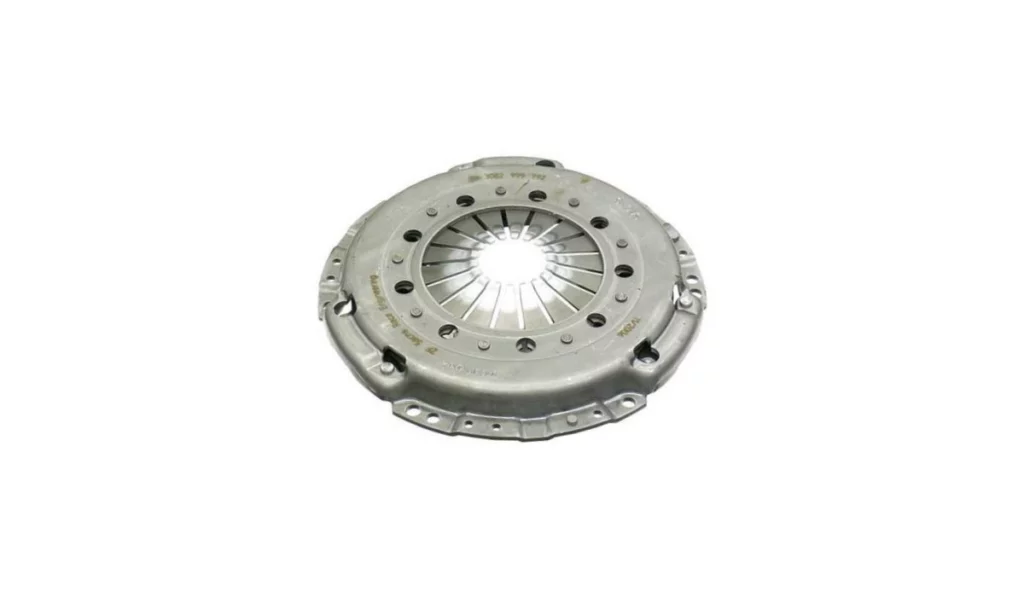
Inspect the clutch components and replace any worn, damaged, or leaking parts. Additionally, check the transmission fluid level and condition, topping it up or replacing it as needed to ensure proper lubrication.
Unusual Noises
Unusual noises such as whining, humming, or clunking can indicate worn bearings, gears, or low transmission fluid. These components can wear out over time or due to inadequate lubrication, causing noises during operation.
Inspect the bearings and gears for signs of wear and replace them if necessary. Also, check the transmission fluid level and quality, and refill or replace it to ensure adequate lubrication. Again, if internal components are significantly damaged, it may be necessary to overhaul or replace the entire transmission assembly.
Vibration or Shaking While Driving
Vibration or shaking while driving is often caused by a worn transmission mount or issues with the driveshaft. A damaged transmission mount can cause the transmission to move excessively, leading to vibrations. Driveshaft issues, such as imbalance or worn universal joints, can also cause shaking.
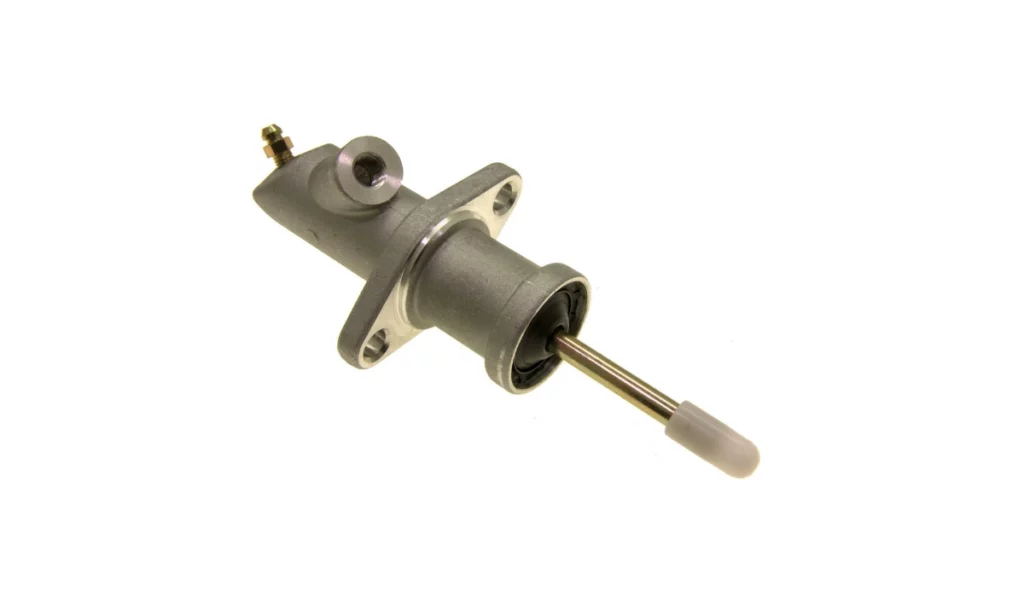
Inspect the transmission mount for wear or damage and replace it if needed. Additionally, check the driveshaft for any issues and address them to eliminate vibrations.
Transmission Popping Out of Gear
If your transmission pops out of gear while driving, it may be due to worn shift linkage or cables, or internal transmission faults. Worn linkage or cables can prevent proper gear engagement, while internal faults can cause gears to disengage unexpectedly.
Inspect the shift linkage and cables for wear or damage and adjust or replace them as necessary. If the issue persists, further inspection of the internal transmission components may be required to identify and fix any faults. If significant internal issues are found, overhauling the transmission or replacing the assembly might be necessary.
By following these troubleshooting steps and solutions, you can address common manual transmission issues and ensure your BMW continues to deliver a smooth and enjoyable driving experience.
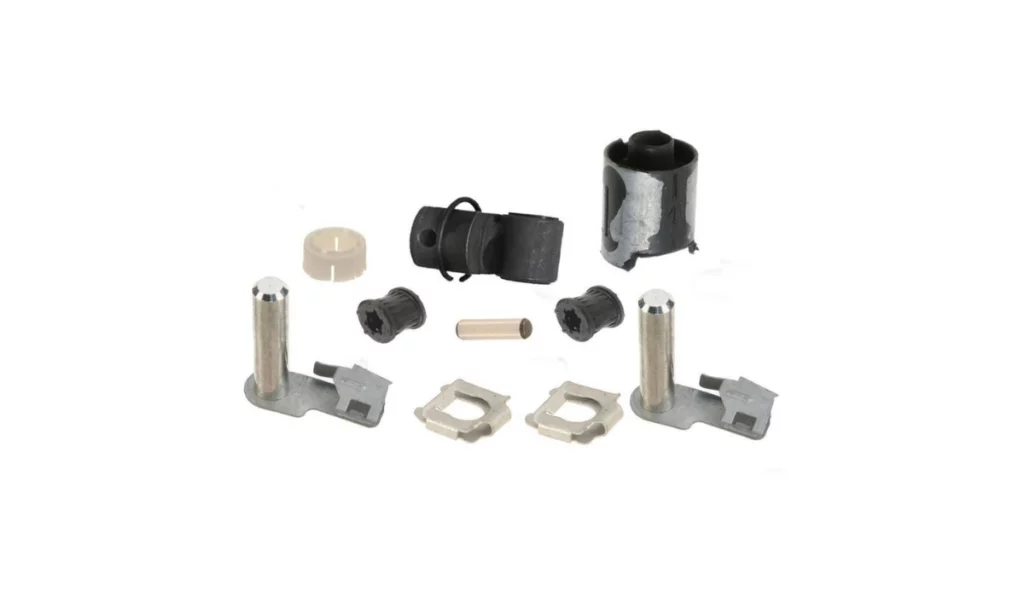
When to Seek Professional Help
While many manual transmission issues can be addressed through DIY troubleshooting and repairs, some problems may be too complex for the average car owner. Knowing when to seek professional help is crucial for ensuring your BMW receives the proper care and maintenance. Here are some key points to consider:
Proper Diagnostics and Quality Repairs
Accurate diagnostics are crucial for identifying the exact cause of transmission problems. Professional mechanics use advanced diagnostic tools to pinpoint issues, ensuring correct repairs are made.
Quality repairs prevent further damage to your transmission and other related components, helping maintain your BMW’s performance and reliability. Ignoring or improperly addressing transmission issues can lead to more severe problems and costly repairs down the line.
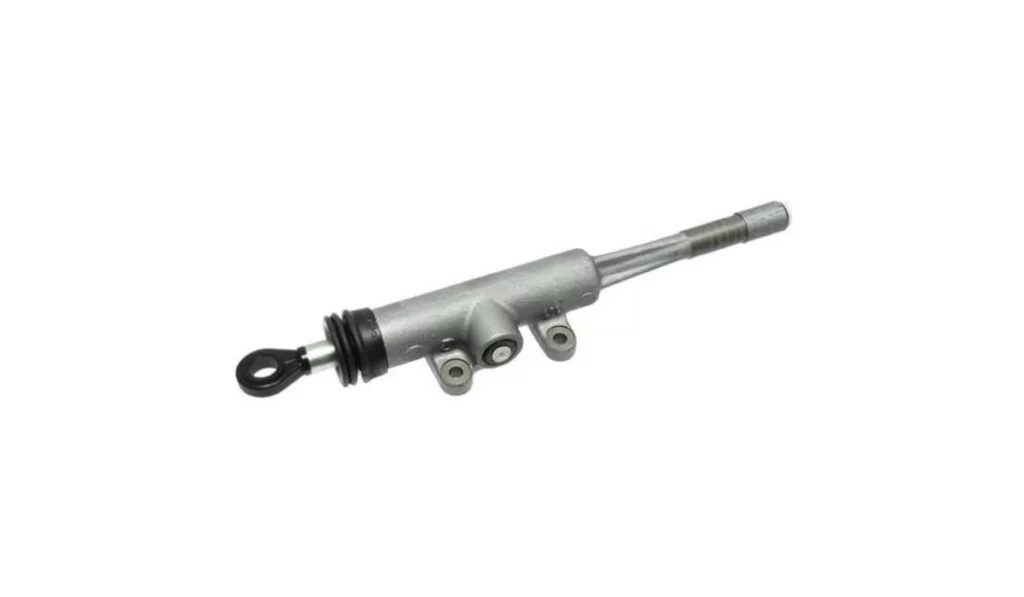
Complex DIY repairs
If you encounter persistent issues despite performing initial inspections and basic repairs, it may indicate a more complex problem. Signs such as severe grinding noises, inability to shift gears, or a completely unresponsive transmission suggest that the issue might be beyond the scope of DIY repairs. Additionally, it’s best to consult a professional if you lack the necessary tools or expertise to diagnose and fix the problem.
BMW Transmission Repair Expertise.
Professional mechanics with experience in BMW repair have the expertise and tools to diagnose and fix transmission issues accurately. They can identify underlying problems that may not be apparent during DIY inspections.
Consulting a professional ensures that the repairs are done correctly, reducing the risk of further damage and prolonging the life of your transmission. Furthermore, professionals can provide warranties on their work, offering peace of mind and protection against future issues.
Preventative Maintenance Tips
Proper maintenance is key to ensuring the longevity and performance of your BMW’s manual transmission. Regularly following these preventative maintenance tips can help you avoid major issues and keep your transmission running smoothly. Here are some essential tips to consider:
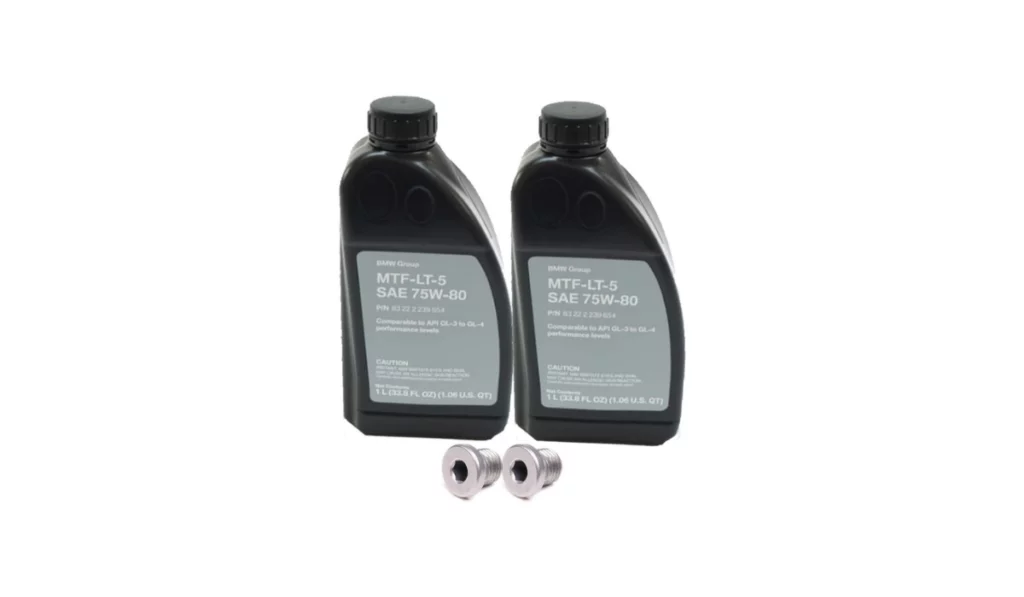
Correct Gear Oil Level
Maintaining the correct transmission fluid levels is crucial for ensuring smooth gear shifts and proper lubrication of transmission components. Regularly check the fluid levels and top up as necessary. Additionally, inspect the fluid for contamination and metal shavings, which can indicate underlying issues.
Clutch Maintenance
Clutch components such as the clutch disc, pressure plate, and flywheel wear out over time and can affect transmission performance. Ensure these components are replaced when signs of wear become evident. Timely replacement helps maintain smooth operation and prevents further transmission issues.
How long will a BMW clutch last?
The lifespan of a BMW clutch typically ranges between 30,000 to 150,000 miles, depending on driving habits and conditions. Gentle driving and proper maintenance can extend the clutch’s life, while aggressive driving, frequent stop-and-go traffic, and towing can reduce it.
Regular inspections and timely replacement of related components, such as the clutch disc and pressure plate, can help maximize the clutch’s longevity. Always refer to your owner’s manual and consult with a professional mechanic to ensure optimal performance and longevity of your BMW’s clutch system.
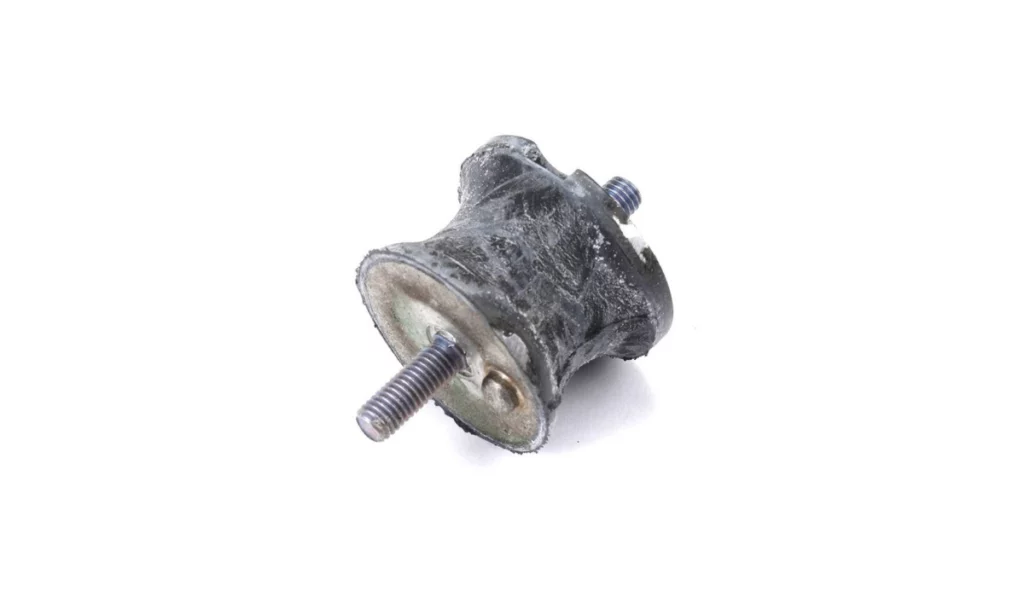
Always Use High-Quality Parts
Using high-quality replacement parts from reliable sources like bimmers.com can significantly impact the performance and longevity of your transmission. Investing in quality parts ensures better compatibility and durability, reducing the likelihood of future issues and enhancing the overall driving experience.
By following these preventative maintenance tips, you can keep your BMW’s manual transmission in optimal condition, ensuring a reliable and enjoyable driving experience for years to come.
Trust Bimmers.com for Your BMW Parts Needs
Maintaining and repairing your BMW’s manual transmission requires high-quality parts to ensure optimal performance and longevity. At Bimmers.com, we pride ourselves on offering a wide selection of premium BMW parts that meet your vehicle’s stringent standards.
Whether you need clutch components, transmission fluids, or any other replacement parts, Bimmers.com has you covered. Our parts are sourced from reputable manufacturers, ensuring reliability and durability. By choosing Bimmers.com, you invest in the best for your BMW, guaranteeing that your vehicle remains in top condition.
Explore our extensive inventory today and experience the difference quality parts can make. Visit Bimmers.com now to find the perfect parts for your BMW and keep your driving experience seamless and enjoyable.





















